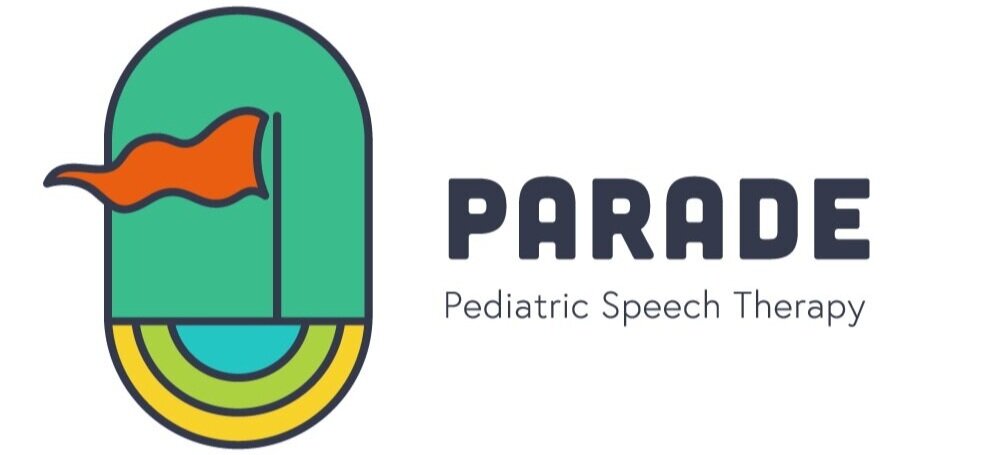I offer in-person and online speech therapy sessions tailored to the needs of gestalt language processors to help them develop novel language to communicate.
Could your child be a gestalt language processor?
Does your child often repeat lines from Youtube videos, movies, songs or things you’ve said?
Do they rewind Youtube videos or movies to see and hear specific parts that they love over and over again?
Do they recite books that you’ve read together?
Does your child’s babbling or speech have rich intonation and an almost music-like quality?
Instead of answering questions, does your child tend to repeat words or lines back to you that they’ve heard before?
Do these repetitions sometimes seem out of context to you?
If this sounds like your child, they may be a gestalt language processor. Gestalt language processors start talking by repeating “chunks” of language they’ve heard before instead of starting with one word at a time. Gestalt refers to the chunks of language that a child repeats. Many times gestalts are longer phrases but they can also be single words. Repeating words, lines or chunks of language hours, days or months after it is heard is called delayed echolalia. Even though a child’s repeated phrases may seem out of context to you, to the child it’s meaningful! It’s our job to do some investigative work to figure out where the language is coming from and what it means.
We can think of gestalt language processing as a top-down approach. Your child may say phrases like “To infinity and beyond!” or “I’m excited to go!” first, instead of words like “cookie” or “mommy.” As they develop, they start to break these sentences up to mix and match with other learned words and phrases until they start recognizing that single words can stand alone and can be used together to form novel sentences.
In contrast, analytic language processors are what we may think of as “traditional” language processors. When you look at “typical” language milestones, these are for analytic language processors, not gestalt language processors. This is where kids start with single words, and then add two words, and then three words until children are speaking in conversations. For example, a child may say “dog” first, and then as their language grows, they say “big dog,” and then “The big dog is running.” We can think of this as a bottom-up approach. Analytic language development can be supported using “traditional” speech therapy approaches that focus on increasing single word vocabulary and then helping kids form longer sentences as they develop.
Since gestalt language processors develop language in a different way, we can’t support them with an analytic or traditional speech therapy approach. It doesn’t work! When we do this, we end up giving gestalt language processors a lot of one-word “chunks” of language (ex. such as “more” or “all done”) that they can’t break down in the future to generate their own original language and they can get stuck. That’s where the Natural Language Acquisition framework comes in!
Here are the initial stages of the Natural Language Acquisition framework in gestalt language processing:
Stage 1: Echolalia - Strings of language that are repeated from others, including communication partners, songs, or media. Ex: Let’s get out of here! Want some more?
Stage 2: Mitigated Echolalia - The strings of language from Stage 1 are now able to be mixed and matched with other chunks of language. Ex: Let’s get some more! Want out of here!
Stage 3: Isolation of Single Words - Words are now isolated into single words and can be recombined to generate two-word phrases. Ex: Get… more! Want…go!
Stage 4: Self-Generated Grammar - This is when a child starts formulating original sentences, starting out simple and then increasing in complexity. Ex: I get. I wanna get some more.
Reference: Marge Blanc
Knowing your child’s language processing style and the right strategies will help you support them on the path to developing the ability to produce novel, original language. Some children can get stuck in the early stages of Natural Language Acquisition and without assistance they may continue to script and echo and may have trouble moving to Stage 3 to start generating novel language to express their ideas.
I am a registered, trained clinician by Meaningful Speech in the Natural Language Acquisition approach. I help gestalt language processors move from scripting and echolalia to original, self-generated language.
Check out my blog posts on gestalt language processing:
What is Gestalt Language Processing?
How Do I Know if My Child is a Gestalt Language Processor?
Do you think your child may be a gestalt language processor? Contact me to learn more about how we can work together to support your child to develop original language!


